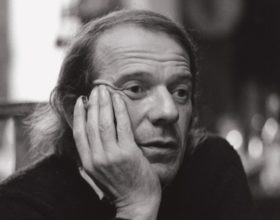As indicated at the end of the recent blog Cosa vuoi? on desire in Jacques Lacan, I wish now to reflect briefly on the implications of this line of thought for moral theology. Let me say at the outset that I have been for many years, and remain to this day, a fervent disciple of Aristotle and Thomas Aquinas on this question. Their programme could be summed up in the phrase “educating desire” (A. MacIntrye). The human being is seen as an essentially rational being who has the redoubtable task of controlling his (or her) various desires so that they do not wreck havoc in his life and that of those with whom he intimately associates. The only way to do this is to practice individual acts of moderation etc. so as to develop the corresponding virtues, which make the moral life possible. All this constitutes a theoretical and practical model of human thriving which has served generations of human beings in various cultural contexts. The thought of Lacan, inspired by Freud, however, puts this schema into what is technically known as “epistemological crisis”. An epistemological crisis occurs within a discipline, such as ethics or moral theology, when new data…
In the mouth or under the pen of Jacques Lacan the simple question “cosa vuoi?” becomes a bomb. The bomb is intended, as so often in his case, to explode our illusions about ourselves. In what follows I wish to share with the reader a few, almost arbitrary, reflections on this simple but potent weapon. A first line of reflection concerns the use of the Italian language. Lacan was very theatrical, indeed histrionic, in his therapeutic and didactical styles. Switching for two words out of French into Italian, whether written or spoken, certainly would have had a certain dramatic effect. Pronounced with the strong intonation of a question in Italian and accompanied by an insistent hand gesture, this question immediately puts the interlocutor under psychological pressure on various fronts. The two most obvious of these concern the two words of which the question is composed. “Cosa”, or better still “Cosa?”, in the context of Lacan’s thought, is an extremely loaded term, loaded like a gun. The word succinctly poses questions and insinuates judgements. The first question is: “Do you know what you want?” or “Do you really think what you want is…
Avendo presentato in un post precedente la posizione della Fratelli tutti sul populismo e sulla migrazione, vogliamo ora considerare i temi della fraternità universale e dell’amicizia sociale come la base della risposta del Papa. La parola chiave qui è “base”. Questi due termini non costituiscono una proposta politica specifica e neanche una valutazione morale concreta, ma esprimono due atteggiamenti fondamentali che dovrebbero essere alla base di ogni politica e di ogni etica. Per capire i termini fraternità universale e amicizia sociale bisogna capire prima fraternità familiare e amicizia personale, o prima ancor fratello e amico. Che cosa è un fratello? Ne ho tre nella mia famiglia. Siamo figli dello stesso padre e abbiamo giocato, litigato e condiviso come fanno fratelli. La parola “fraternità” in contesto familiare esprime tutta una costellazione di affetti, emozioni, sentimenti, atteggiamenti, disposizioni e usanze. Che cosa è un amico? Ne ho perso uno due anni fa, morto a 60 anni. Siamo stati amici fraterni per 40 anni, in tempi felici e in tempi duri. La parola “amicizia”, anch’essa, esprime tutta una gamma di attitudini, aspirazioni, condivisioni e reazioni. Notiamo bene che l’atteggiamento iniziale necessario per lo sviluppo di tutte queste qualità è una postura di apertura…
Per felice coincidenza o forse per divina provvidenza in Accademia Alfonsiana abbiamo avuto recentemente nel corso sul socialismo una bella discussione sull’Utopia di Tommaso Moro. Abbiamo riflettuto sulla forma di vita idillica che si conduce su questa famosa isola. Se avete letto le prime reazioni alla Fratelli tutti, avrete notato che l’enciclica è spesso accusata d’essere utopistica. Così nasce il titolo di questo breve intervento: Fraternità universale e amicizia sociale: Utopia o Realpolitik? Nella seconda parte di questo post darò la mia risposta a questa domanda. Prima vorrei fare una breve lettura dell’enciclica in ottica politica. L’ermeneutica ci insegna, e non da ieri, che la prima cosa da fare nell’interpretazione di un nuovo testo è di individuarne il genere letterario: non si può leggere una poesia come fosse un trattato di fisica. Il genere letterario “enciclica sociale” è abbastanza conosciuto nelle specificità del suo scopo, del suo stile, dei suoi contenuti e dei suoi destinatari. Spesso una tale enciclica tratta di una questione sociale specifica: la situazione degli operai nella Rerum Novarum, l’auspicabile modello economico post-sovietico nella Centesimus Annus o l’ecologia nella Laudato si’. Naturalmente, mentre trattano la questione specifica queste encicliche toccano vari altri argomenti. Orbene, qual…
Gilles Deleuze (1925-1995) was one of the most prominent French philosophers of the 20th century. Before he died, he agreed to grant a long interview of a rather special kind – but on condition that it would not be released until after his death! In French the title of the interview, released in two DVD’s, is L’Abécédaire de Gilles Deleuze because in it Deleuze commented on a term beginning with each letter of the alphabet (Animal, Boisson…etc). Conversational in style, the interview contains quite a range of stimulating reflections and indeed an amount of real wisdom. The purpose of this post is to share his comments when he got to the letter P for Professor! The lady conducting the interview asked: “Professor, you were once a teacher in a lycée and you are now professor of philosophy at the Sorbonne. Can I ask you what is the main difference between the way you prepared your classes for school and the way you prepare your lectures for the university?” Deleuze smiled, shook his head, and said: “Absolutely none. When I was teaching in the school I read and I wrote until I had found something that I had to…





